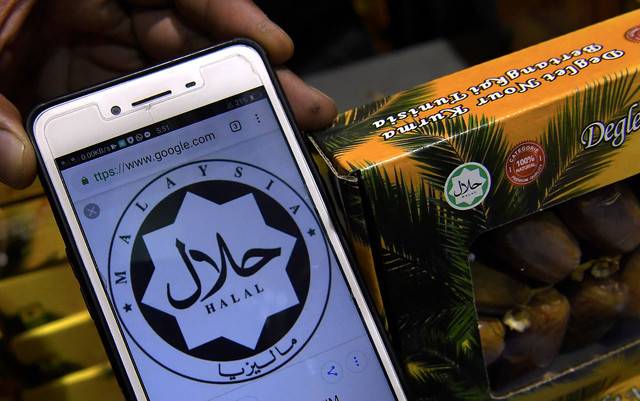Malaysia's halal certification a seal of quality among Islamic countries - Brazil ambassador
The requirements that Malaysia have are more stringent than the Gulf Cooperation Council countries (Bahrain, Kuwait, Oman, Qatar, Saudi Arabia and the United Arab Emirates).

KUALA LUMPUR - Malaysia’s halal certification has been very much valued among Brazilian exporters as it allows them to export their halal products to several Muslim countries more easily.
Ambassador of Brazil to Malaysia Ary Norton De Murat Quintella said Malaysia has stronger requirements for halal certification than most Islamic countries.
"The requirements that Malaysia have are more stringent than the Gulf Cooperation Council countries (Bahrain, Kuwait, Oman, Qatar, Saudi Arabia and the United Arab Emirates).
"When you are able to export (halal products) to Malaysia, it is a seal of quality that you receive to export to all other Islamic countries. Brazilian exporters value that very much and they all want to export to Malaysia," he said in The Nation programme entitled "Malaysia-Brazil Relations and the Role of BRICS in the Global South" produced by Bernama TV on Wednesday.
According to Quintella, Brazil has a significant Muslim community of about 1.5 million and the halal industry is very strong and compatible with Malaysia’s.
"Brazil concentrates its halal exports on animal protein. The first time I went to the opening of The Malaysia International Halal Showcase (MIHAS) in 2022, I learned that Malaysia’s halal sector is not just limited to animal protein.
"At the opening of MIHAS (2024), it is clear that Malaysia’s requirements (for halal certification) are valued by other Muslim countries," he said, adding that Brazil’s halal industry adheres to the respective rules of each Muslim country it exports to.
"We follow the Malaysian rules when we export (to Malaysia). In the Gulf region, we follow their rules. Each market has its own rules," he added.
On Tuesday, Deputy Agriculture and Food Security Minister Datuk Arthur Joseph Kurup said Malaysia and Brazil will enhance collaboration to tap the global halal market which is anticipated to generate US$3 trillion next year.
Kurup said agricultural trade between the two countries has been on an upward trend, reaching RM6.4 billion in 2023.
"Brazil is already a leading exporter of halal meat products to Muslim-majority countries, and Malaysia is recognised globally for its robust halal certification system managed by the Department of Islamic Development Malaysia (Jakim). By aligning our respective strengths, we can expand our research and reach in the global halal market,” he said
Meanwhile, on Brazil-Malaysia bilateral investment, Quintella said this is on the discussion table with a lot of opportunities for mutual investment.
"Malaysian firms in the oil and gas sector and renewable energies are already huge investors in Brazil, not only Petronas, but also Sapura and Yinson Holdings Bhd.
"They're very important investors in Brazil’s energy sector. For that reason, Malaysia is now one of the main energy providers in Brazil. At the same time, the biggest Latin American investment in Malaysia is by a Brazilian firm,” he said.
Brazil is Malaysia’s second largest trading partner in Latin America. In 2023, total trade between Malaysia and Brazil was valued at RM17.46 billion, a 4.0 per cent rise from RM16.86 billion recorded in 2022. - BERNAMA










